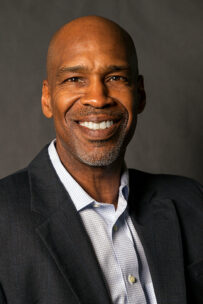by Jeffrey Fletcher
After a 30-year stint in the Army, TPS Member Jeffrey Fletcher retired, eager to pursue a new direction. His calling? Photography! However, Jeffrey's first step was education and a return to the traditional classroom environment.
- Tell us about your background.
I retired from the Army in 2018 after serving 30 years on Active Duty. I started off as an Infantry Officer, then later transitioned to the Human Resources Management field where I spent the majority of my career. I come from a military family; my father and older brother both served, but to be honest, I never planned on serving more than five or six years. However I really enjoyed the camaraderie and traveling to new places that being in the military offered. I fell in love with Germany, Italy and France and also deployed several times to Kuwait, Iraq and Afghanistan. Along the way I met and made lifelong friends from many different backgrounds and cultures.
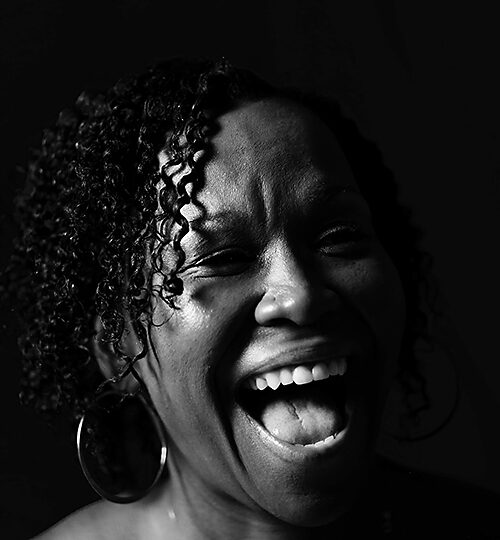
- What interests you about photography and how long have you been photographing?
My work in photography takes an introvert’s approach to capturing urban, rural and landscape images. An empty bench, an abandoned alleyway, a quiet street corner. These are scenes that typically only an introvert or recluse would be drawn to, but what I think anyone seeking a moment of solitude in a hectic world can recognize and appreciate. I studied Broadcast Journalism in college, so I’ve played around with cameras for quite some time, but I really didn’t begin to pursue it seriously until after my last deployment in 2014.
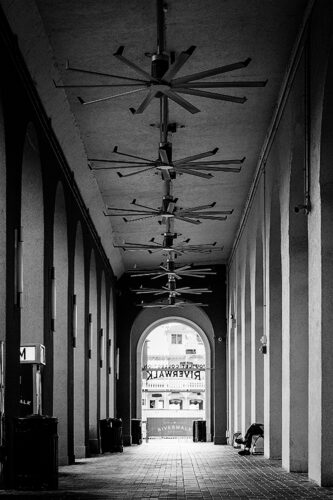
- What drew you back to the camera, then, in 2014?
My last deployment to Afghanistan was a very rewarding but challenging experience. I was fortunate to work with a wonderful international team of soldiers and civilians that included native Afghans. There was a real threat of danger every day, which took its toll on everyone. One of the things we did to help relieve the stress in our off time was a photo contest. The images one of my teammates in particular captured, (his name is Rod Bridgewaters), were stunning and reminded us all of the beauty present in Afghanistan.
I ordered a digital camera kit shortly thereafter, and had it sent home so it would be waiting for me after my deployment. I was reassigned to the northern Virginia area after my deployment, and started shooting in earnest. I focused initially on landscape photography but gradually started shooting award and retirement ceremonies at the job.
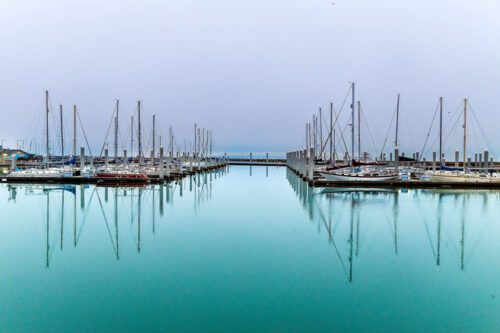
- Why a BFA in digital photography? What are your plans when you graduate?
After retiring from the Army, my initial plan was to take a year off before pursuing any type of employment. I wanted to take that time to fully invest in my passion for photography, and to do some traveling. I know many photographers are self taught and rely on YouTube tutorials and other similar tools to develop their skills. I guess I’m old school and prefer the traditional classroom environment. And I had my GI Bill benefits that would cover the cost of tuition. All of this factored into my decision to go back to school as a full-time student at The Art Institute of San Antonio.
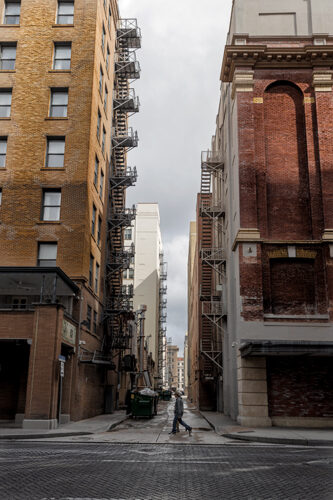
The campus is not far from where I live, so the commute is ideal, but what really convinced me to “take the leap” was the faculty and students who made me feel very welcome from the moment I visited. I am scheduled to graduate in the Fall of 2021.
Someone once told me “find something you love to do and you’ll never work a day in your life.” So with that in mind I plan to keep growing my business, JFletch Photography LLC, after graduation. I think I’m going to focus on still photography for the near term, but I’m currently collaborating with a creative partner on a video project so I feel like videography is something that I might eventually delve into.
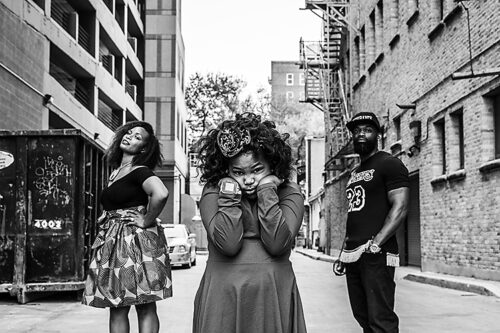
- Any interesting experiences or discoveries that you have had so far in school?
It’s been a minute since I’ve been back in a college setting, and even though I’m older than most of my classmates and instructors (old enough to be their parents in many cases), the environment is always relaxed, positive and conducive to developing your craft. We have a good time. My instructors are all talented photographers that work in the industry; it’s really amazing to be able to pick their brains and get their feedback on how to not just take good pictures, but create great art. They force us to work outside of our comfort zones, too, which has helped me broaden my portfolio.
Interestingly enough, I’ve learned just as much from my classmates, who are incredibly gifted and supportive. While the pandemic has forced us to move from in-classroom to virtual/ online classes, we’re all adapting and making the best of the situation.

One of the first classes I had to take was Observational Art. The class is designed to help photographers better understand how to “see” objects within the frame, and requires us to realistically sketch myriad objects. I was skeptical at first because I don’t have an ounce of artistic drawing ability, but to my surprise, I learned to apply some basic fundamentals and created some decent sketches that changed my earlier opinions. I’m also learning some of the finer aspects of product photography and contemporary art which were genres that were rather foreign to me but are definitely helping me to develop as a photographer.
One of the nice things about being in a class of younger people is that it has helped me get out of old habits and approaches to photography. My classmates are always looking for creative ways to light a subject or compose an image, and it really helps me to keep an open mind towards experimentation and creativity. One thing I’ve aggressively incorporated is shooting from different perspectives, something that I never consistently applied before enrolling at the Art Institute.
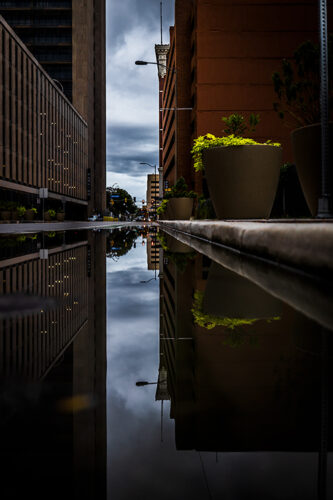
I just completed a Photo Essay class and our finals project was to put together a series of photos and a slideshow accompanied by music. I chose to cover the upcoming Presidential election and how it’s playing out here in Texas. It was a truly eye opening and personally gratifying experience.
- Do you think your classmates or your instructors have learned something from you?
That’s an interesting question that I’m not sure how my classmates or instructors would respond! One thing I think my classmates might offer is that because of my military background, I’ve developed a knack for striking up conversations with total strangers and getting their help to model for our different homework assignments.
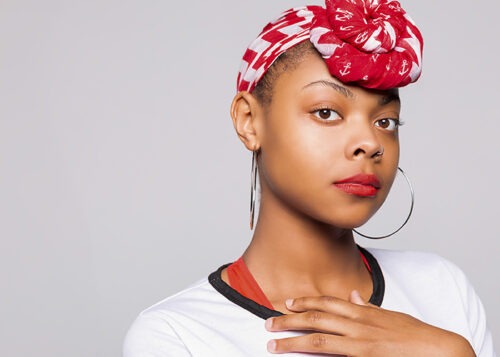
- Tell us more about how you connect with your subjects.
What’s interesting to me is that because of social media and cell phone “selfies”, most people I have had the opportunity to shoot already intuitively know how to pose, and what their “good side” is for portraits. They are usually very comfortable in front of the camera! That makes my job so much easier as a photographer, but I find that sometimes these images don’t look very natural; they’re almost “too” posed. So I think connecting with the subject and getting them to relax leads to a much more authentic looking image.
When I’m in the studio, I like to play music from the subject’s favorite kind of music or playlist. Music seems to help everyone to loosen up a bit. I also like to strike up a casual conversation with my subjects; ask a question about a trip they’ve taken, or their kids or pets, and as they’re talking I will start shooting. Some of my favorite, and what I believe are the most authentic portraits, are those taken during these casual moments. I prefer to work in a studio for portraits, as it gives me the greatest amount of control with lighting. That being said, some of my favorite portraits are candid environmental shots away from the studio using natural lighting.
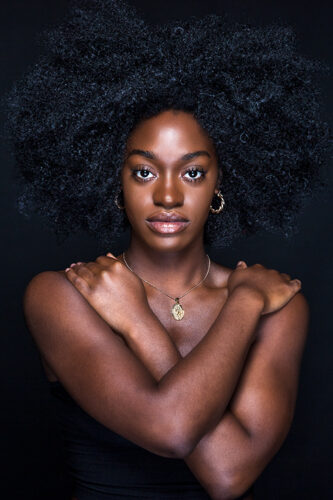
- Beyond the portraiture, what genre of photography appeals to you?
My passion for traveling is probably why I lean towards landscape and urban photography. I think that fine art photography is a genre that I want to develop a greater expertise in. To date I have primarily focused on creating images that focus strictly on aesthetic and general commercial appeal. Moving forward I would like to expand my portfolio to include images that are more abstract in nature, and allow the viewer to come to their own conclusions about the message and meaning of the photos.
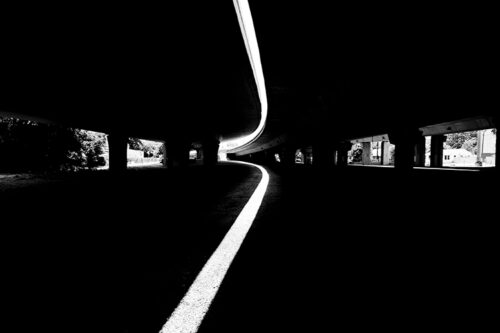
- Who are your mentors - in life and/or photography?
I have been fortunate to have many mentors, too many to name here. But some who have been most instrumental in my growth as a photographer include my older brother Michael, who is a self taught photographer living in California. He has always encouraged me to keep shooting, and has been instrumental with helping me grow and improve on the technical aspects of photography.
San Antonio based photographer Jeffrey Fletcher is an Army veteran specializing in compelling portrait, landscape and fine art photography. He is currently pursuing his BFA in Digital Photography from the Art Institute in San Antonio.
